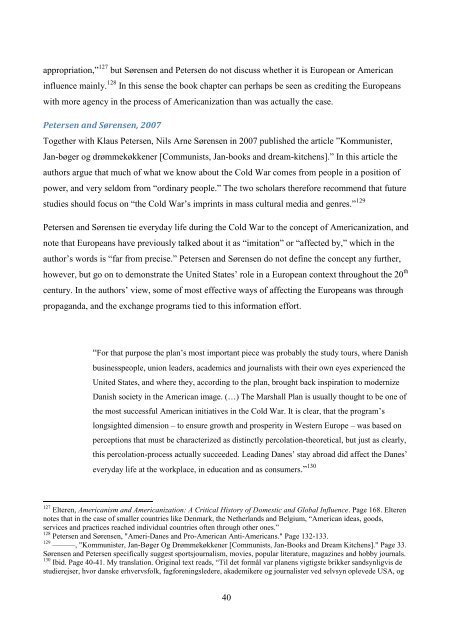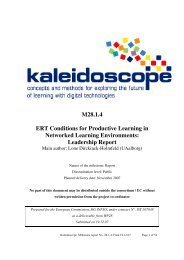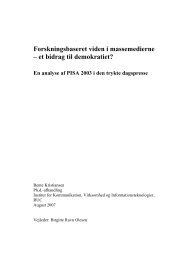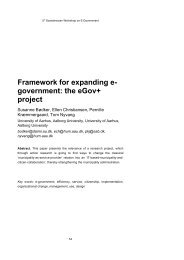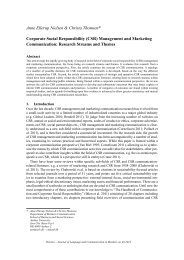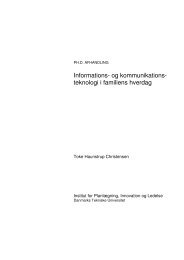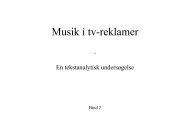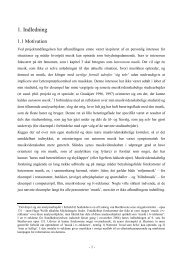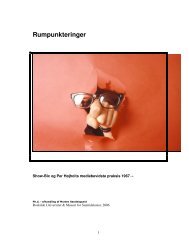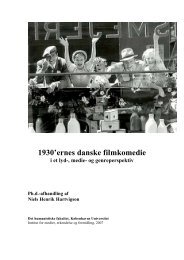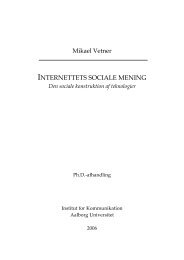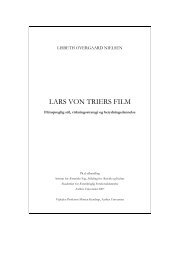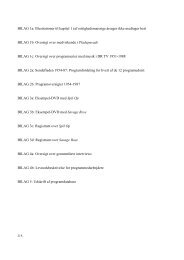The Jeremiad Over Journalism
The Jeremiad Over Journalism
The Jeremiad Over Journalism
Create successful ePaper yourself
Turn your PDF publications into a flip-book with our unique Google optimized e-Paper software.
appropriation,‖ 127 but Sørensen and Petersen do not discuss whether it is European or American<br />
influence mainly. 128 In this sense the book chapter can perhaps be seen as crediting the Europeans<br />
with more agency in the process of Americanization than was actually the case.<br />
Petersen and Sørensen, 2007<br />
Together with Klaus Petersen, Nils Arne Sørensen in 2007 published the article ‖Kommunister,<br />
Jan-bøger og drømmekøkkener [Communists, Jan-books and dream-kitchens].‖ In this article the<br />
authors argue that much of what we know about the Cold War comes from people in a position of<br />
power, and very seldom from ―ordinary people.‖ <strong>The</strong> two scholars therefore recommend that future<br />
studies should focus on ―the Cold War‘s imprints in mass cultural media and genres.‖ 129<br />
Petersen and Sørensen tie everyday life during the Cold War to the concept of Americanization, and<br />
note that Europeans have previously talked about it as ―imitation‖ or ―affected by,‖ which in the<br />
author‘s words is ―far from precise.‖ Petersen and Sørensen do not define the concept any further,<br />
however, but go on to demonstrate the United States‘ role in a European context throughout the 20 th<br />
century. In the authors‘ view, some of most effective ways of affecting the Europeans was through<br />
propaganda, and the exchange programs tied to this information effort.<br />
―For that purpose the plan‘s most important piece was probably the study tours, where Danish<br />
businesspeople, union leaders, academics and journalists with their own eyes experienced the<br />
United States, and where they, according to the plan, brought back inspiration to modernize<br />
Danish society in the American image. (…) <strong>The</strong> Marshall Plan is usually thought to be one of<br />
the most successful American initiatives in the Cold War. It is clear, that the program‘s<br />
longsighted dimension – to ensure growth and prosperity in Western Europe – was based on<br />
perceptions that must be characterized as distinctly percolation-theoretical, but just as clearly,<br />
this percolation-process actually succeeded. Leading Danes‘ stay abroad did affect the Danes‘<br />
everyday life at the workplace, in education and as consumers.‖ 130<br />
127 Elteren, Americanism and Americanization: A Critical History of Domestic and Global Influence. Page 168. Elteren<br />
notes that in the case of smaller countries like Denmark, the Netherlands and Belgium, ―American ideas, goods,<br />
services and practices reached individual countries often through other ones.‖<br />
128 Petersen and Sørensen, "Ameri-Danes and Pro-American Anti-Americans." Page 132-133.<br />
129 ———, "Kommunister, Jan-Bøger Og Drømmekøkkener [Communists, Jan-Books and Dream Kitchens]." Page 33.<br />
Sørensen and Petersen specifically suggest sportsjournalism, movies, popular literature, magazines and hobby journals.<br />
130 Ibid. Page 40-41. My translation. Original text reads, ―Til det formål var planens vigtigste brikker sandsynligvis de<br />
studierejser, hvor danske erhvervsfolk, fagforeningsledere, akademikere og journalister ved selvsyn oplevede USA, og<br />
40


